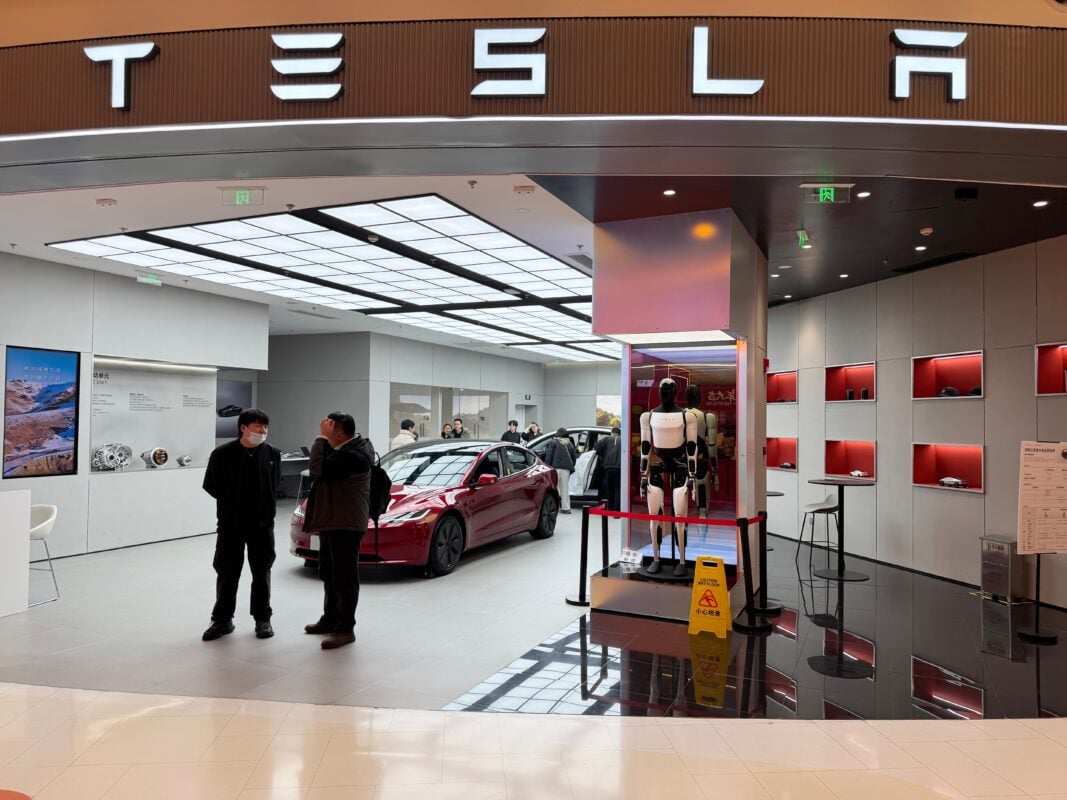TLDRs;
- Tesla’s China sales dropped 13.7% in 2024, highlighting growing pressure from local EV brands.
- The Chinese EV market expanded by 35% in the first seven months of the year.
- Tesla’s Shanghai Gigafactory posted an 8.4% year-on-year dip in July deliveries.
- Domestic competitors dominate with lower-priced, competitive electric models.
Tesla’s grip on the Chinese electric vehicle (EV) market continues to loosen as domestic brands make rapid gains.
According to new data from the China Passenger Car Association (CPCA), Tesla’s Shanghai Gigafactory delivered 67,886 Model 3 and Model Y units in July, marking an 8.4% year-over-year decline and a 5.2% drop from June.
This comes despite a brief rebound in June that ended an eight-month delivery slump. Between January and July 2024, Tesla’s Shanghai plant, its largest global facility, delivered 432,360 vehicles, down 13.7% compared to the same period in 2023. These figures include both domestic sales and exports.
China’s EV Boom Leaves Tesla Trailing in a Saturated Market
Contents
While Tesla struggles, China’s broader EV industry is booming. Total electric vehicle sales across the country surged 35% to 7.6 million units in the first seven months of 2024.
Experts point to increased demand for more affordable EV models produced by domestic players like BYD, Li Auto, and XPeng. Tian Maowei, a sales manager at Yiyou Auto Service, highlighted that many consumers are gravitating toward budget-friendly options with comparable tech and features.
Tesla’s long-standing competitive edge, fast production and lower-cost manufacturing at its Shanghai Gigafactory, is being blunted by aggressive pricing strategies and rapid innovation from Chinese competitors.
Broader Market Strain Signals Overcapacity Issues
Tesla’s difficulties mirror a larger trend of mounting pressure across the entire Chinese EV landscape. Even market leader BYD, known for consistently high volumes, saw its first monthly drop in deliveries in July 2025, shipping 341,030 units, down from 377,628 in June.
This slump followed intense price wars, with some models slashed by as much as 30%. The Chinese government has since warned automakers against unfair pricing tactics that could destabilize the sector. The wave of discounts and overproduction has raised concerns that the market is reaching saturation, despite the strong demand growth.
Tesla Eyes Recovery with New Product Line and Autonomy Push
In the face of slowing core sales, Tesla is betting on future innovation. At a recent event in San Mateo, California, Tesla Vice President Lars Moravy called the company’s current phase a “big swing.”
Upcoming projects include the highly anticipated autonomous “Cybercab,” the humanoid robot Optimus, and the Tesla Semi. Tesla has also begun testing limited autonomous rides in Austin and has hinted at launching a more affordable EV later this year, potentially to counter competition from budget-friendly Chinese rivals.
Still, with declining sales and the upcoming expiration of U.S. federal EV tax credits, Tesla’s global growth ambitions face a tougher road ahead.


